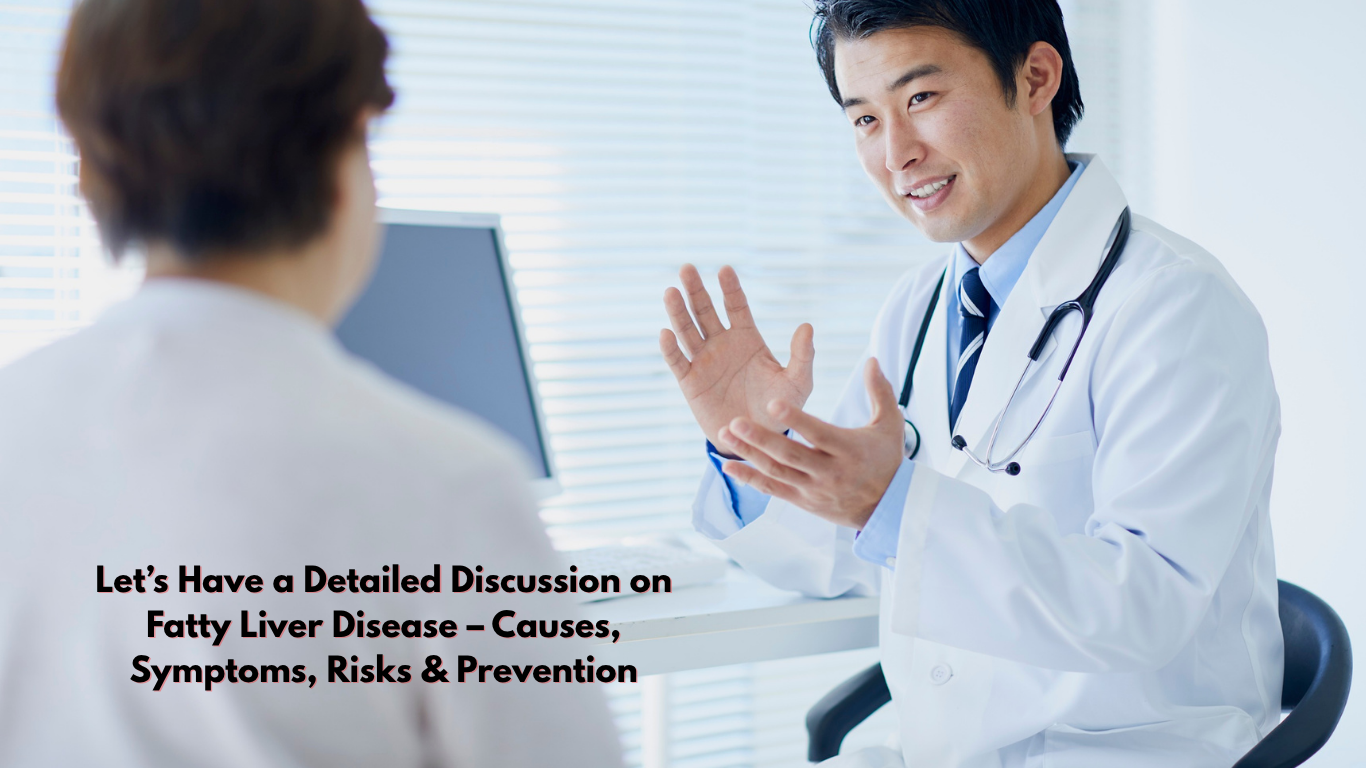
I’m starting this thread to talk about a health condition that’s becoming more common day by day – Fatty Liver Disease. It's something that affects millions of people worldwide, often without any symptoms in the early stages. But if left untreated, it can lead to serious health problems.
Whether you've been diagnosed recently, have a loved one dealing with it, or simply want to learn more — this is the place to talk, ask, and share.
🔍 What Is Fatty Liver Disease?
Fatty liver disease (also known as hepatic steatosis) occurs when there is an excess buildup of fat in the liver cells. Normally, the liver contains some fat, but when more than 5–10% of its weight is fat, it’s considered a fatty liver.
There are two main types:
1. Non-Alcoholic Fatty Liver Disease (NAFLD):
Occurs in people who drink little or no alcohol.
Often linked to obesity, diabetes, and poor lifestyle.
It can progress to a more severe condition called Non-Alcoholic Steatohepatitis (NASH), which may lead to cirrhosis or liver cancer.
2. Alcoholic Fatty Liver Disease (AFLD):
Caused by heavy alcohol consumption.
Long-term alcohol abuse damages liver cells and leads to fat accumulation.
Can also progress to cirrhosis if alcohol intake is not reduced.
🧬 What Causes Fatty Liver?
Several risk factors contribute to fat buildup in the liver, including:
Overweight or obesity
Insulin resistance and type 2 diabetes
High cholesterol or triglyceride levels
Poor diet, especially one high in sugar, refined carbs, and saturated fats
Sedentary lifestyle with little or no exercise
Genetics (family history)
Certain medications like steroids, tamoxifen, or methotrexate
Rapid weight loss or malnutrition
Polycystic Ovary Syndrome (PCOS) in women
⚠️ Symptoms of Fatty Liver – Often Silent!
Most people with fatty liver disease don’t experience any noticeable symptoms, especially in the early stages. That’s why it’s sometimes called a “silent disease.”
However, as the condition progresses, some may notice:
Constant tiredness or fatigue
Mild to moderate pain or discomfort in the upper right side of the abdomen
Weight loss without trying
Weakness
In advanced cases: jaundice, swelling in the legs or abdomen, confusion, or bleeding issues
📉 Can Fatty Liver Lead to Serious Health Problems?
Yes, if left untreated, fatty liver can progress through several stages:
Simple Fatty Liver (Steatosis) – harmless fat buildup
NASH (Non-Alcoholic Steatohepatitis) – fat causes liver inflammation and damage
Fibrosis – scar tissue forms as liver tries to repair itself
Cirrhosis – severe scarring, irreversible damage, possible liver failure or cancer
✅ How Is Fatty Liver Diagnosed?
Doctors may use the following to diagnose fatty liver:
Blood tests: Elevated liver enzymes (ALT, AST)
Ultrasound: Common, non-invasive imaging to detect fat in the liver
CT scan or MRI: To assess fat and liver size
Fibroscan: A special ultrasound to measure liver stiffness (fibrosis)
Liver biopsy: Rarely needed unless diagnosis is unclear
💡 Can Fatty Liver Be Reversed?
Yes, especially in early stages!
Lifestyle changes are the most effective way to reverse fatty liver:
Lose 7-10% of your body weight gradually
Exercise regularly (at least 30 minutes/day)
Eat a liver-friendly diet:
Low in sugar and refined carbs
High in fiber, fruits, vegetables, whole grains
Healthy fats like omega-3s (found in fish, flaxseed, walnuts)
Avoid alcohol completely, especially with NAFLD
Manage diabetes, cholesterol, and blood pressure
Avoid unnecessary medications or supplements that stress the liver
There’s no specific medication approved yet for NAFLD, but treating underlying conditions can help.
🍽️ Diet Tips for Fatty Liver Patients
Eat small, frequent meals.
Include lean protein: chicken, fish, tofu, beans.
Avoid processed and fried foods.
Say no to soft drinks, sweets, and white bread.
Choose olive oil or mustard oil instead of saturated fats.
Drink plenty of water to flush out toxins.
Some herbal remedies like milk thistle or turmeric may help (only after doctor approval).
💬 Let’s Support Each Other!
Dealing with fatty liver can feel overwhelming, especially since it often doesn’t “feel” like a disease until it's advanced. But with the right knowledge, support, and lifestyle, it's manageable and reversible.
Please feel free to reply with your experiences, ask questions, or share helpful tips. Let’s make this thread a place of learning and encouragement for everyone!
Write a comment ...